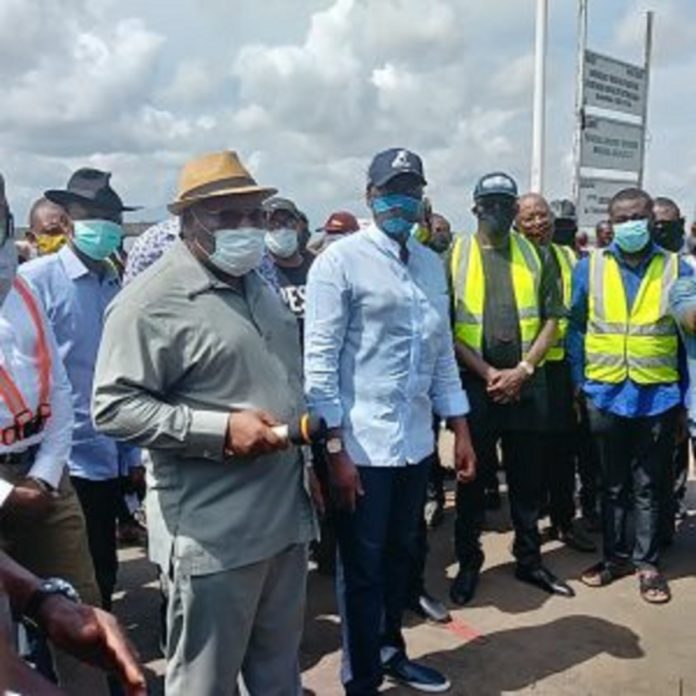The Anambra and Delta Governments on Tuesday agreed on strategies to check the heavy human and vehicular traffic across the Niger Bridge amidst the ban on inter-state travel.
The News Agency of Nigeria (NAN) reports that the Secretary to the Government of Anambra, Prof. Solo Chukwulobelu and his Delta counterpart, Mr Chiedu Ebie, held a meeting at the Asaba end of the bridgehead.
The Commissioners of Police as well as COVID-19 Task Force teams from both states were also present during the meeting.
The meeting was held to douse tension between the two state governments over iron barricades built on both sides of the bridge on the orders of Gov. Willie Obiano of Anambra.
The iron barricade on the Asaba end of the bridge was reportedly pulled down last weekend by some Delta youths.
Addressing newsmen after their deliberations, Chukwulobelu said both governments had agreed to further move away their check points from the foot of the bridge to enable free flow of traffic.
“The idea is that those trucks that are not essential or not carrying essential commodities, can be turned back very quickly while those that come into the bridge can have faster exit.
“This will ensure that there are no heavy trucks parking on the bridge at any point in time and further minimise the waiting time and suffering of people running this bridge,” he said.
The Anambra SSG also said that both parties agreed that each truck crossing the bridge would have just a driver and two helpers.
“If you are carrying more than three including the driver, that truck will not be allowed to proceed and may be impounded,” he warned
He said that the two states further agreed to swap personnel to build confidence in the process.
“The two state governments have agreed to ensure that construction workers and materials, especially those for Federal Government projects are not hindered from crossing,” he added.
On his part the Delta SSG, promised that the state government would collaborate with Anambra government to ensure that the strategies were implemented to guarantee flow of traffic.
“But our plea to everyone is that, if you have no business on the bridge, respect yourself and stay away.
“Those who defy the directive will have their trucks impounded; before you depart your station, ensure you are not carrying frivolous goods.
“We noticed that some commercial transporters play smart by discharging their passengers shortly before the bridge and then crossing to pick them up at the other side.
“We will be smarter this time around to ensure that such buses are impounded as well,” Ebie stressed.
Earlier, Julius Berger Project Manager for Second Niger Bridge, Mr Friedrich Wieser, expressed concern over the integrity of the bridge as a result of accumulation of heavy traffic.
“We have the mandate from the Federal Government to continue work even under the COVID-19 pandemic.
“Of course, we resumed work in May but the company finds it difficult to move daily to site due to traffic.
“If the bridge can be free, it will be beneficial to the construction of the second Niger Bridge,” Wieser said.
The project manager also appealed to the two state governments to consider materials used for the construction work as essential, saying that certain work could not be postponed due to the rising level of water.
NAN reports that afterwards the two teams jointly checked a few vehicles to ensure compliance.-







